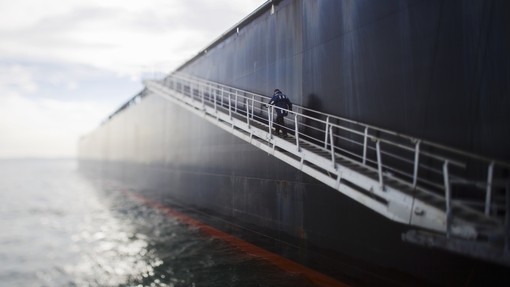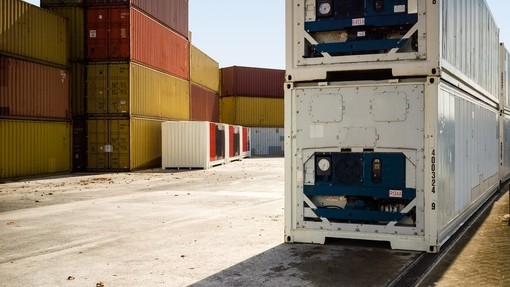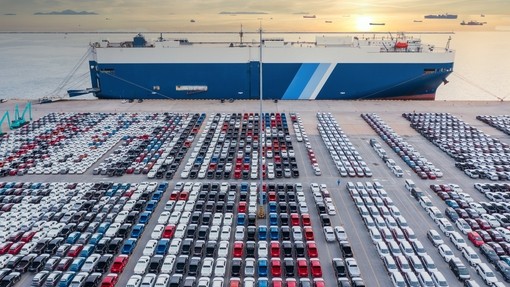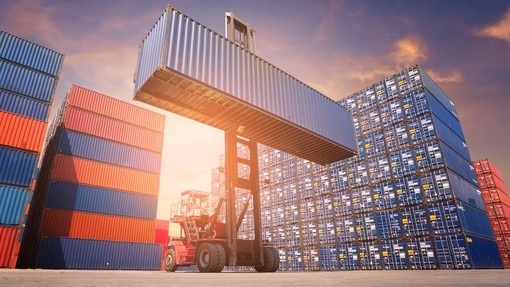Why the current supply chain crisis casts a shadow over the festive period

Details
“Christmas is cancelled” – three words the general population does not want to hear! While there’s every hope that the pandemic is in retreat, this doom-laden scenario could become reality if the global supply chain buckles as a result of the unrelenting pressure it’s currently operating under, outline Hill Dickinson’s cargo & logistics advisors Richard Allingham and Elizabeth Elliott.
The general perception that the international supply chain runs smoothly and without incident – appearing to tick over like a well-oiled machine – has been unceremoniously shattered by a series of events which have shone a collective spotlight on this global behemoth. The Covid-19 pandemic, the blocking of the Suez Canal, and the unleashing of pent-up retail activity have all focused attention on shipping’s critical role in the supply chain.
As the world’s population becomes more aware of the nuances and distortions which impact global supply chains and logistical movements, it is important to consider how and why things go wrong, the effect of such incidents, and how businesses and consumers may be impacted in unsuspecting ways.
Every day there are new and compelling stories conveying the pressure upon logistics services and the effect this is having at both international and national level.
Cause of this crisis
The reasons for this current crisis are varied. Most obvious are the complications attributable to the Covid-19 pandemic and subsequently the appearance of more resistant and invasive strains.
One has only to look at the chaos in Chinese ports to see the effects of the pandemic upon the supply chain. At the port of Ningbo Zhoushan port, one of the top five busiest ports, a decision was taken to close the port to trade when a port worker tested positive for Covid-19. Such closures invariably reverberate across the shipping industry: ships are unable to dock and discharge their cargo; vessels anchor off shore in limbo awaiting decisions from carriers; cargo is at risk of non or late delivery; and shipping companies scramble to make last minute alternative arrangements – seeking new ports and discharge destinations. Meanwhile exporters must seek alternative delivery methods in road transportation or air freight.
Such port closures create chaotic bottlenecks, congestion and significantly reduced capacity. Port closures in China have led to a shortage of containers in other ports around the world.
As economies work toward a post pandemic recovery, the surge in demand occasioned by that recovery is threatening an industry which is already at capacity. In the US, a government stimulus has encouraged everyone to purchase goods. In the UK, a post pandemic revival has unleashed pent-up spending and has led to an increase in demand for goods.
The recent incident involving the “EVER GIVEN”, a highly publicised blocking of that artery of international trade that is the Suez Canal, created its own list of supply issues. This monumental incident meant that over 300 ship voyages were interrupted, delayed or rerouted and supplies did not make it to or from their destinations in time, impacting manufacturing, delivery chains and seasonal sale windows.
These are some of the more obvious and well-known issues affecting global supply, but it is important not to focus solely on such incidents. The environmental climate emergency and political unrest in many nations have an ongoing impact upon global supply, creating a worryingly cumulative effect.
In the summer months many nations are at the mercy of forest fires, intense heat and natural weather phenomena such as tropical storms and monsoon season. In winter extreme weather can also have a hampering effect. Such fluctuations in climate cannot be controlled and the movement of cargo is increasingly at the mercy of the elements.
Although not always ‘front-page news’, piracy remains a problem. Shipping goods through some areas can still require armed guards and enhanced security measures –something unthinkable on an inland motorway route.
Political stability is also key to safe transit. Recently, and without explanation, Chinese authorities refused the import of Australian coal into its ports, leaving many ships at anchor with only a wait-and-see approach to guide them.
Thus the global supply chain is sensitive to the effects of human and physical geography. While these matters in themselves are enough to cause delays and problems where they occur, invariably they create a tsunami of other issues, including congestion and distortion further along the chain.
International impacts
Port closures in China are not isolated events. Such decisions have impacts felt in other ports globally including in the EU and the USA. For example, port closures in China have led to a shortage of containers in other ports. With the surge in demand for goods, a lack of containers in which to ship these goods will have other effects.
When the supply chain cannot cope, and supply cannot meet demand, this creates a contraction in supply, leading to inevitable – sometimes staggering – price rises. This has been evidenced by the astronomical rise in container shipping prices due to the lack of available containers and a shortage of available products resulting in increases in consumer prices, all as a direct result of a lack of capacity within the global supply chain.
These problems are compounded by labour shortages. In the USA, due to the pandemic, numerous ships are currently anchored off the port of Long Beach as port workers are routinely quarantined. There are simply not enough port workers to assist with discharge.
On top of this, today’s container ships are larger now than ever before meaning the amount of cargo that needs to be transported, when it is finally discharged, requires significant manpower, storage, and transhipment. The logistical supply chain is finding it difficult to accommodate the vast amount of goods flowing through the chain at present.
A lack of supply both to and from producers and consumers means that an inability to ship goods results in overcrowding in storage solutions and warehouses.
This can result in unexpected quay rent charges, detention and demurrage, and storage or warehousing charges when containers and goods pile up port side and there is neither an ability to ship them out, find alternative means of transport or, in some instances, ongoing storage facilities.
Where there is a blockage at one end of the chain, the remaining participants are overstretched and running near capacity. Where alternatives to shipping are now, in some cases, urgently required, air and road freight are currently absorbing the demand.
Air couriers are providing air freight at such levels that it is currently taking weeks to allocate shipments to their owners. At a national level, road freight is under significant pressure, compounded in some areas by a shortage of drivers or border restrictions.
Not only are hauliers coping with the general malaise that is the global supply problem, absorbing the demand as best they can, they are doing so under unrelenting conditions.
Road hauliers been impacted by the pandemic, a time during which many drivers returned to their home nations to ride out the viral storm, but drivers have also chosen to leave having been attracted to their home countries by rising domestic wages. Brexit is not to be ignored, helping European drivers make an easy decision even easier, in light of increased form filling and border controls leading to significant delays. An industry whose workers are aging, is finding it difficult to attract new drivers, despite the surge in demand and the wages to match.
What can be done?
This all sounds rather apocalyptic and a culmination of the causes and effects may indeed exacerbate the situation prior to any hope of levelling out.
Such uncertainty creates a difficult operating environment where service is everything.
As we head into peak season for deliveries, in advance of the Christmas rush, what does this crisis mean for cargo carriers and freight forwarders? How can you protect your business and preserve your client relationships?
In essence such a situation is about risk management. Preservation, preparedness, response and recovery are the core objectives.
Understanding the contractual chain, the parties’ obligations and preparing for likely eventualities in the current climate are a good place to start. Managing trusted relationships within the supply chain is going to be absolutely key to navigating the storm.
Being aware of potential delays within the supply chain and who is responsible for that movement will make it easier to rectify a problem or provide an alternative solution.
Keeping on top of likely port closures, possible congestion or customs issues, may make it easier to circumvent delays at discharge or loading, preventing accrual of unnecessary port charges or detention and demurrage.
Communication with warehousing operatives and other freight forwarders will keep you alive to the issue of capacity and whether your cargo can be effectively transhipped or stored should the need arise.
Be informed and be prepared!
As leading cargo and logistics advisors, Hill Dickinson LLP are well placed to advise on any potential risks, coverage issues and disputes, providing creative solutions to such problems.
This article was first published in Maritime Risk International on 26 October 2021






